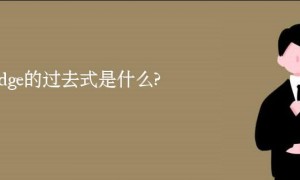judge, adjudge, adjudicate, arbitrate
这组词都有“裁决”的意思。它们的区别是:
judge指在审查了双方的证据,听取了证词和衡量了双方的功过之后裁定哪一方正确或有理,强调审判的“过程”; adjudge指在审判结束或在审判过程中法庭作出判决,强调审判“程序”; adjudicate指法庭以裁定、宣判或法令等形式作出正式和慎重决议,即强调审判“结果”; arbitrate指由一人或多人组成的机构对有争执的事件作出慎重决定,这种机构的设立不一定符合法律程序,但为争执双方认可。
judge, conclude, deduce, gather, infer
这几个词共同的意思是“推断”。它们的区别在于:infer指从不太充分的论据或前提中推断出结论; conclude指通过推理或判断而得出结论; deduce指有充分根据地推论或逻辑上地演绎; gather指综合事物得出印象或感想等; judge通常指经过仔细鉴定或评价之后作出的决断。例如:
From his a manner of dress and style of living,I gather that he is man of considerable means.从他的穿着式样和生活方式,我揣想他是个相当富有的人。
She had concluded from that her grandmother did not like her.她已从那一点得出结论,断定她祖母不喜欢她。
If you saw a doctor leaving a house, you might deduce the fact that someone in the house was ill.你要是看到医生从一家出来,你就可以推想那家有人生病。
We see smoke and infer fire.我们看到烟,从而推断有火。
Judging from what you said, they ought to succeed.从你说的情况看来,他们应当能成功。
下面的句子意思相同,但语体不尽相同:前两句属于非正式语体,多用于比较随便的口语会话中; 后三句较为正式,多用于书面语体。试体会:
I judge that she is an excellent lawyer.
She is an excellent lawyer,I judge.
I judge her to be an excellent lawyer.
I judge her an excellent lawyer.
I judge her as an excellent lawyer.
我认为她是一位好律师。
judge, arbiter, arbitrator, referee, umpire
这组词都可指在观点发生冲突或分歧的情况下,有权或授权作出裁决的人。它们的区别是:
judge的本义指主持法院工作并听取证词,对案件作出判决的法官。广义上讲, judge可指鉴定人。arbitrator和arbiter都可指从争议双方推举出来解决分歧的仲裁者或公断人,但arbitrator更为常见。arbitrator通常单独或与人合作来裁决(尤指劳工方面的)纠纷,而arbiter(书面语)常指没有权威或官职而靠自己的权威对非法律问题(如时装、文学等)作出决断或提出乐意遵从的准则的人。例如:
Dress designers, not dress-makers, are the arbiters of women's fashions.由服装设计师而不是缝衣匠来判定女装的流行款式。
referee和umpire都含有arbitrator(仲裁者、公断人)的含义。在此意义上, referee适用于在技术方面为处理特殊诉讼案件而由官方指定的仲裁人; 而umpire是指在重要或错综复杂的论点中,当双方公断人发生意见冲突或僵持不下时,出面进行最终裁决的人。此外,两词还常用于体育方面,指那些被指定实施比赛规则、排解纠纷的裁判员。此时的referee指篮球、台球、拳击、足球、曲棍球等比赛的裁判; 而umpire常指在网球、羽毛球、乒乓球、排球、游泳等比赛中充当裁判的人员。此外,乒乓球和网球的裁判有时也称judge。
infer,deduce,conclude,gather,judge
这些动词都含“推断”之意。
infer指从已提供的论据或从已接受的前提出发而推断出的结论。
deduce指有充分根据的推论,也指逻辑学上的演绎。
conclude指得出符合逻辑的结论。
gather指从听到的情况推测、判定。
judge多指经过仔细鉴定或评价之后作出决断。
sentence,condemn,judge,convict,doom
这些动词都含有“判决、宣判”之意。
sentence法律用词,指根据罪犯所犯罪行的轻重而宣判处罚。
condemn指法院对审理结束的案件做出的定罪判刑。
judge指对案件作出审理判决,但判决内容较笼统,不如sentence和condemn使用广泛。
convict法律用词,指审判后判定有罪,但未作最后判决。
doom书面用词,指郑重他宣判某人有罪。










